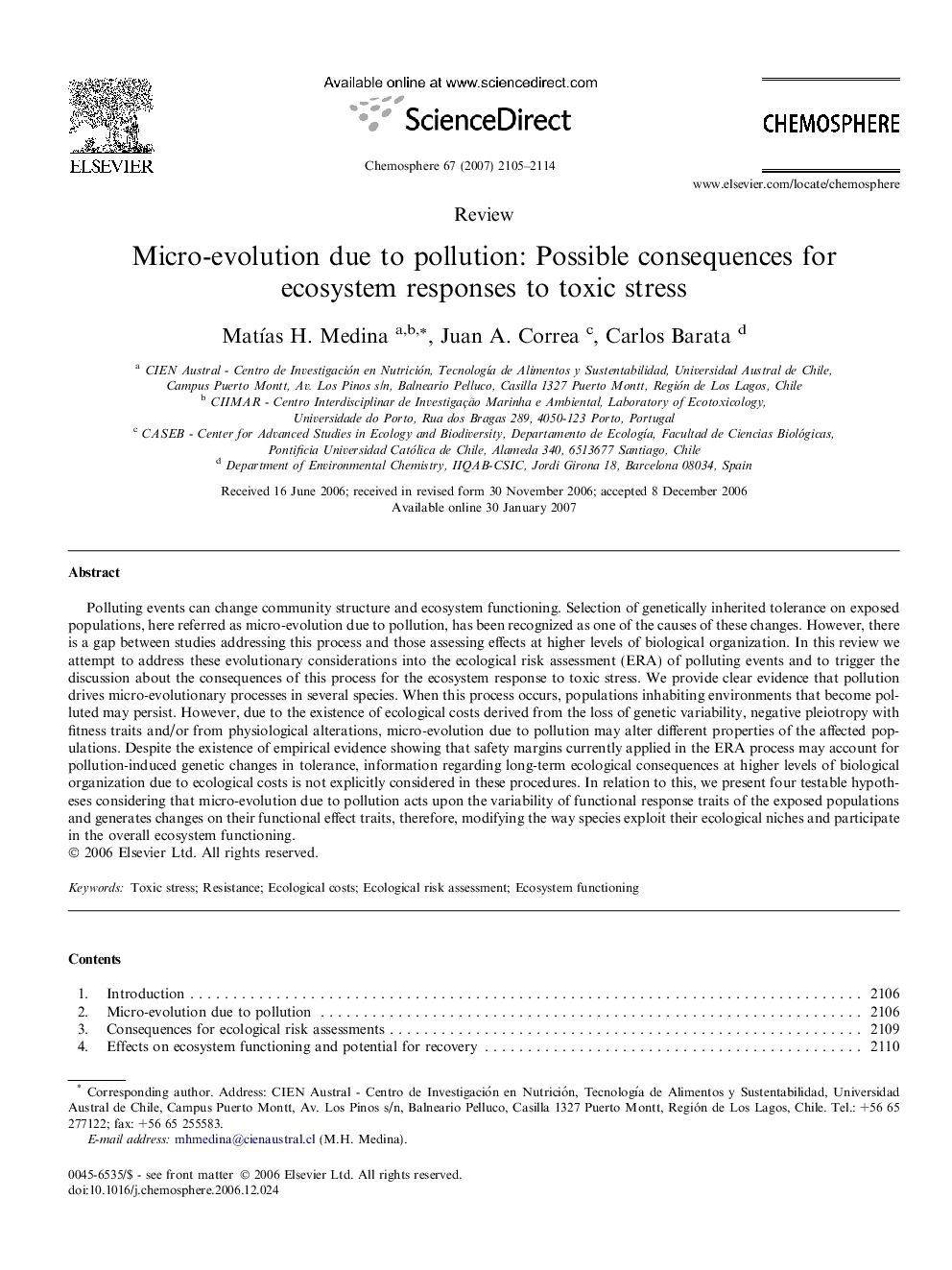| Article ID | Journal | Published Year | Pages | File Type |
|---|---|---|---|---|
| 4415257 | Chemosphere | 2007 | 10 Pages |
Polluting events can change community structure and ecosystem functioning. Selection of genetically inherited tolerance on exposed populations, here referred as micro-evolution due to pollution, has been recognized as one of the causes of these changes. However, there is a gap between studies addressing this process and those assessing effects at higher levels of biological organization. In this review we attempt to address these evolutionary considerations into the ecological risk assessment (ERA) of polluting events and to trigger the discussion about the consequences of this process for the ecosystem response to toxic stress. We provide clear evidence that pollution drives micro-evolutionary processes in several species. When this process occurs, populations inhabiting environments that become polluted may persist. However, due to the existence of ecological costs derived from the loss of genetic variability, negative pleiotropy with fitness traits and/or from physiological alterations, micro-evolution due to pollution may alter different properties of the affected populations. Despite the existence of empirical evidence showing that safety margins currently applied in the ERA process may account for pollution-induced genetic changes in tolerance, information regarding long-term ecological consequences at higher levels of biological organization due to ecological costs is not explicitly considered in these procedures. In relation to this, we present four testable hypotheses considering that micro-evolution due to pollution acts upon the variability of functional response traits of the exposed populations and generates changes on their functional effect traits, therefore, modifying the way species exploit their ecological niches and participate in the overall ecosystem functioning.
